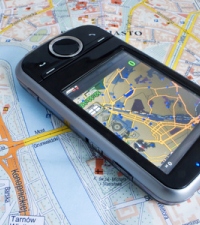Relocate and Keep Your Identity Safe

Relocating for a new job, relationship, family emergency or just to become a part of another culture does come with it advantages and disadvantages. One of the disadvantages is that expat families can be especially susceptible targets for identity theft. Therefore, it is necessary to take a few measures to protect personal information while traveling. So before you head out on your adventure, here are a few preventative and protective measures to consider.
Secure Your Belongings
Many who relocate to a faraway country are unable to bring everything they would like to bring with them, but they don't want to get rid of material things that have personal value. Storage warehouses are great for storing belongings long term or temporarily. Before you leave, make sure you understand all terms of the contract, and that storage is available for the amount of time you are going to be away. Check the security of the site by questioning their standards and practices. How do they monitor the facility? Is there video surveillance? How do visitors gain entry? On-site security guards, video surveillance, and swipe card entries provide the best assurance of safety. Also be sure to check out client testimonials as past customers can alert you to potential problems.
Use Public Wireless With Caution
Wifi is available in many spots around the world and it is important to understand how to use it safely. While most identity theft does not occur online, public wireless does provide a prime opportunity for theft. Know that Wi-Fi hot spots are always unsecured connections, so you could be opening yourself up to hacking.
Wireless connections are more susceptible to security problems than a secured network, which means taking precautions by updating any security features on the computer or tablet if you are using it in an unsecured setting. Make sure you are using official wifi networks by checking the name of the network with the owner or store employees. In an attempt to lure you in, hackers might set up fake networks like "FREE Public Wi-Fi" or "Starbucks FREE." Also watch for anyone physically looking at your computer screen or who might be close enough to note passwords or other sensitive information. Ensure your firewall settings are set to "block all incoming traffic" and disable file sharing.
Guard Your Smartphone
Identity theft protection starts with guarding your personal data. It is important to remember a Smartphone is not a basic cell phone. It contains personal, financial and business related data, so it is important to keep the phone secure during your move.
Consider putting a pass code on the phone and activating any remote data wiping features that might be available. By turning on the option to wipe the information remotely, it is possible to eliminate personal data before a thief is able to break the password.
Avoid Public Computers
It is better to avoid the use of public computers for any important actions such as reviewing your bank accounts online, credit card payments or similar activities. The only time a public computer is appropriate for making online payments, accessing personal banking accounts or any other personal data entry is when travelers know the computer and network are secure. By using the computers only for entertainment purposes, the risk of personal data being stolen is dramatically reduced.
With identity theft on the rise, it is important to take protective measures against theft while relocating. By following these steps it is easier to maintain peace of mind and feel confident that personal data is as safe as possible.
By Tracy Bailey, a blogger who writes about travel. She is sharing this article to help others keep their identity safe while traveling after having her identity stolen during a semester abroad. She learned quickly from Lifelock.
- My Life Abroad -
A selection of expat stories

"A fun compulsive read!"
J. Matcham, Amazon
"I strongly advise people ready to live abroad to read this book!"
Patrice, Amazon

 Hiring packing services reduces the stress of moving
Hiring packing services reduces the stress of moving Relocation Services - Which Option is Best?
Relocation Services - Which Option is Best? 5 easy loopholes for wrapping and protecting fragile items
5 easy loopholes for wrapping and protecting fragile items
 AGS Worldwide Movers
AGS Worldwide Movers 1stMove Car Shipping
1stMove Car Shipping Private Tuition: A Priority Among Expat Families for Their Children
Private Tuition: A Priority Among Expat Families for Their Children The Ultimate Guide: Buying Real Estate as an Expat
The Ultimate Guide: Buying Real Estate as an Expat  Basics to Real Estate Investing for the Long Term
Basics to Real Estate Investing for the Long Term  How to Avoid Real Estate Scams
How to Avoid Real Estate Scams